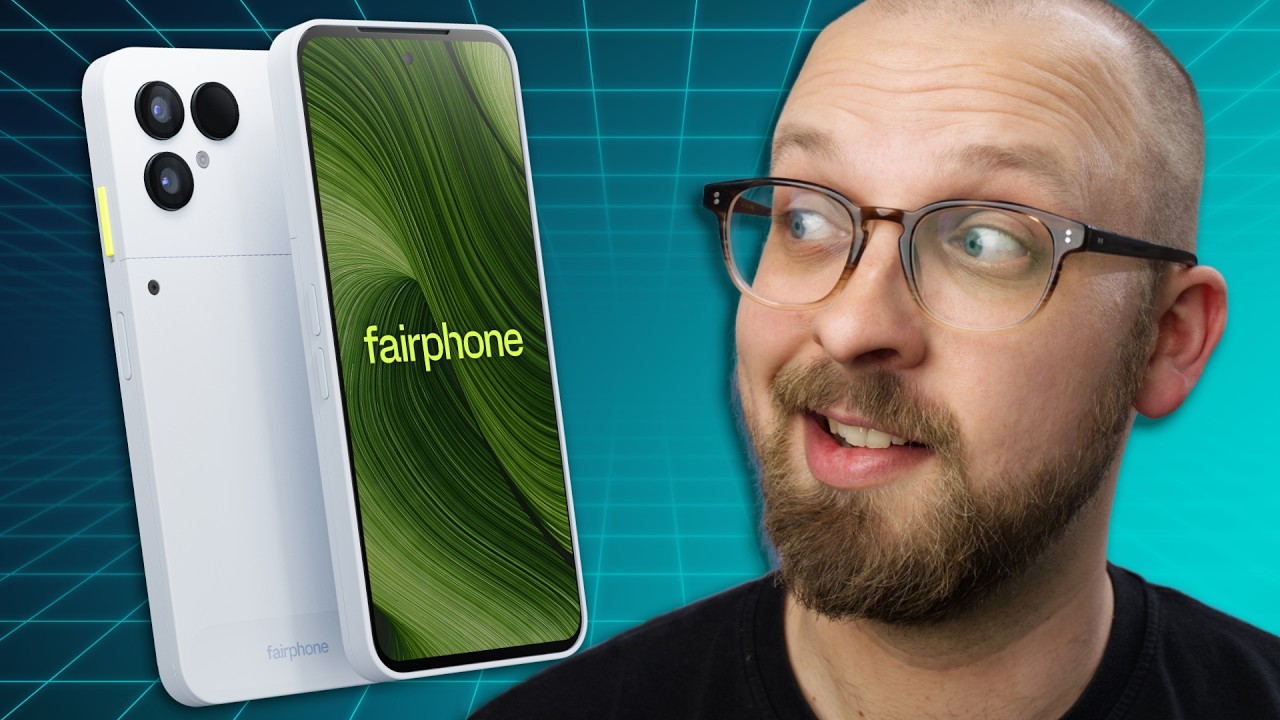The video highlights the launch of the Fairphone 6 with improved modularity and sustainability features, alongside major tech updates including Microsoft’s efforts to enhance Windows security, a landmark AI copyright ruling, and various new product releases from companies like Xiaomi, Poco, and Meta. It also covers significant industry news such as HDMI 2.2’s release, Intel’s exit from automotive, Tesla’s robo-taxi launch, and concludes with a message from the nonprofit 80,000 Hours promoting impactful career guidance.
This week’s video kicks off with an in-depth look at the newly launched Fairphone 6, which is praised as Fairphone’s most promising device yet. The phone features a more compact and lighter design compared to its predecessor, the Fairphone 5, while maintaining its hallmark modularity with up to 12 swappable parts for easy repair. A notable change is that the battery now requires a screwdriver for replacement, allowing Fairphone to fit a larger 4,415 mAh battery. The phone also introduces a modular back panel system and a minimalist Android mode switch. Under the hood, it boasts solid mid-range specs including a Snapdragon 7S Gen 3 chip, 8GB RAM, 256GB storage, a 120 Hz LTPO OLED screen, and a 50MP Sony camera sensor. Fairphone continues its commitment to sustainability and ethics with a 5-year warranty, fair trade materials, and a minimum of 8 years of software support, though the price is relatively high at €599.
The second major story highlights a positive development from Microsoft regarding Windows security. Following a major incident last year where a faulty CrowdStrike update crashed millions of Windows PCs, Microsoft is moving antivirus providers out of the Windows kernel to prevent such system-wide crashes in the future. They have released a private preview of a new system developed in cooperation with multiple security vendors, aiming to maintain security without risking system stability. Microsoft is also considering removing anti-cheat engines from the kernel, signaling a broader shift in how Windows handles critical security software.
The third story covers a landmark court ruling involving AI training and copyright law. The court ruled that Anthropic, the maker of the AI Claude, did not violate copyright by training its AI on legally purchased and scanned books, deeming it fair use. However, Anthropic also pirated millions of books from unauthorized sources like Library Genesis, which the court found to be copyright infringement, leading to further legal action and potential damages. This ruling sets important precedents for AI companies regarding the legality of their training data sources and highlights the ongoing legal complexities in the AI field.
The video also provides a busy release monitor covering various tech announcements. Xiaomi unveiled new smart glasses, a flagship flip phone with a large battery, a new chipset, and their first SUV lineup. Poco launched the F7 with a notably larger battery variant exclusive to India. Insta360 released a more affordable Flow 2 camera aimed at Android users, and Meta introduced a limited edition Quest 3S VR headset with Xbox collaboration. Additionally, Microsoft announced an aggregated gaming library for Xbox PC, Samsung revealed its new Exynos 2500 flagship chip with ray tracing support, and the EU made new smartphone energy labels mandatory.
Finally, the video touches on several other tech and regulatory updates, including the official release of HDMI 2.2 supporting extremely high bandwidths, a leak of the upcoming Logitech MX4 Master mouse, and changes to the Trump phone’s marketing. Intel announced it is shutting down its automotive business, while Tesla launched a limited robo-taxi fleet in Austin with safety drivers still onboard. The video concludes with a sponsor message from 80,000 Hours, a nonprofit focused on helping people find impactful careers addressing global challenges like AI safety, climate change, and pandemic preparedness, offering free resources and career guidance to make a meaningful difference in the world.
